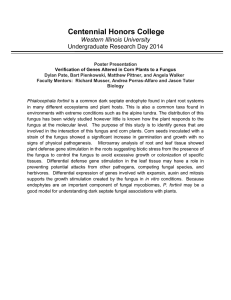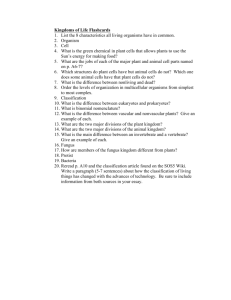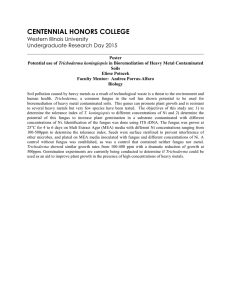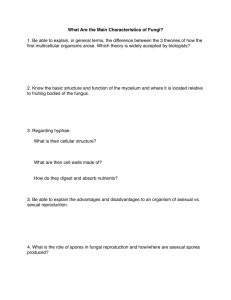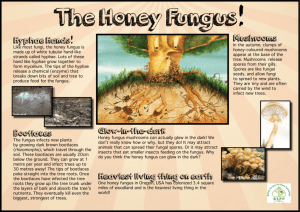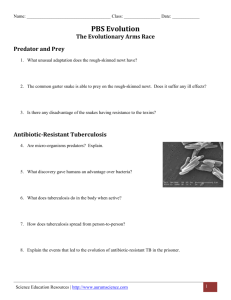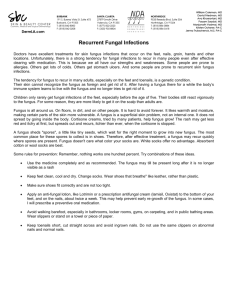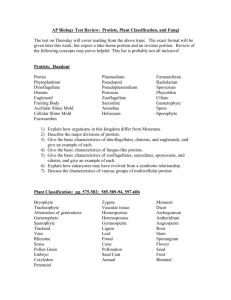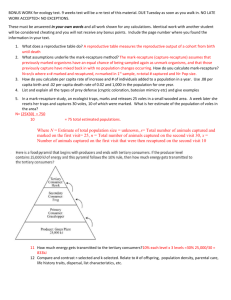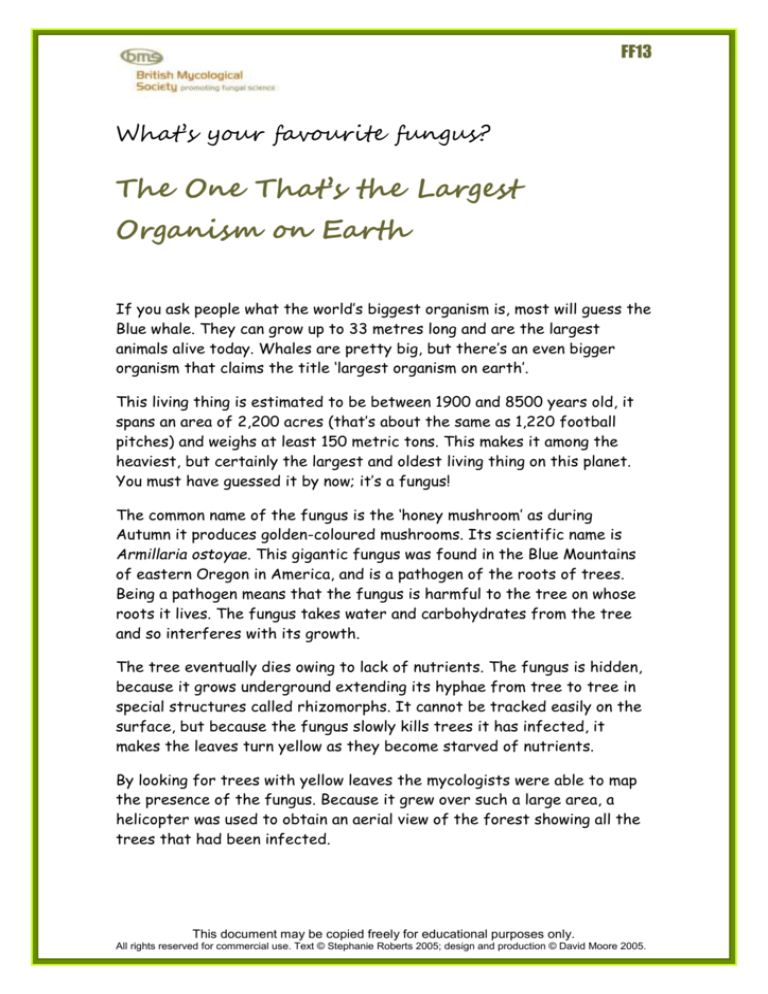
FF13
What’s your favourite fungus?
The One That’s the Largest
Organism on Earth
If you ask people what the world’s biggest organism is, most will guess the
Blue whale. They can grow up to 33 metres long and are the largest
animals alive today. Whales are pretty big, but there’s an even bigger
organism that claims the title ‘largest organism on earth’.
This living thing is estimated to be between 1900 and 8500 years old, it
spans an area of 2,200 acres (that’s about the same as 1,220 football
pitches) and weighs at least 150 metric tons. This makes it among the
heaviest, but certainly the largest and oldest living thing on this planet.
You must have guessed it by now; it’s a fungus!
The common name of the fungus is the ‘honey mushroom’ as during
Autumn it produces golden-coloured mushrooms. Its scientific name is
Armillaria ostoyae. This gigantic fungus was found in the Blue Mountains
of eastern Oregon in America, and is a pathogen of the roots of trees.
Being a pathogen means that the fungus is harmful to the tree on whose
roots it lives. The fungus takes water and carbohydrates from the tree
and so interferes with its growth.
The tree eventually dies owing to lack of nutrients. The fungus is hidden,
because it grows underground extending its hyphae from tree to tree in
special structures called rhizomorphs. It cannot be tracked easily on the
surface, but because the fungus slowly kills trees it has infected, it
makes the leaves turn yellow as they become starved of nutrients.
By looking for trees with yellow leaves the mycologists were able to map
the presence of the fungus. Because it grew over such a large area, a
helicopter was used to obtain an aerial view of the forest showing all the
trees that had been infected.
This document may be copied freely for educational purposes only.
All rights reserved for commercial use. Text © Stephanie Roberts 2005; design and production © David Moore 2005.
FF13
This document may be copied freely for educational purposes only.
All rights reserved for commercial use. Text © Stephanie Roberts 2005; design and production © David Moore 2005.

